Let’s say you’re Marketing Mike, man in charge of all things marketing at a large enterprise. You want to get the word out about a cool new business solution your firm is about to launch into the world. What are your options?
Paid ads? Of course. But they’re also very expensive.
Send emails? Yes, but most of them are going to end up in the spam folder, sandwiched between the $10 million lottery ticket in pink comic sans font and the mail from the exiled oil billionaire asking for your account details so he can wire transfer all his wealth to you.
Social media? Great idea. But mid-to-senior level business execs aren’t all that into TikTok, and LinkedIn is choking with inspirational posts and life lessons.
So what’s left?
Good old SEO.
Organic search still drives up to 77% of all new traffic to B2B websites. Some of the largest businesses on the planet, such as Salesforce, rank for tens of thousands of keywords online, almost all of them organically.
This is why large firms need to invest in a good enterprise SEO strategy.
An enterprise SEO agency is one that specializes in driving organic web traffic for large-scale businesses. Since both the principles and the practice of enterprise SEO are often different from those for small and medium-sized businesses, it is important for large businesses to work only with agencies that have the experience and the resources to operate at the scale demanded by enterprise SEO.
What is Enterprise SEO?
Enterprise SEO is optimizing content for large businesses that are characterized by one or more of the following:
- Have websites running into hundreds of thousands of pages
- Clock annual revenues of billions of dollars
- Have a large and distributed workforce often spread out across international borders
If we had to sum up the difference between enterprise SEO and SEO for small and medium-sized businesses in one word, it would all boil down to a matter of scale.
For instance, consider the case of Salesforce, one of the largest SaaS companies in the world. Their website had close to 4 million pages at the last count.
The firm clocks over $7.72 billion in annual revenue and employs 73,541 people spread across 76 offices across the globe while serving a total of 1,50,000 clients.
Performing SEO for an enterprise of this size and scale differs vastly from doing SEO for a local business selling custom stationery through a Shopify store. The critical factor with enterprise SEO is scale rather than return on investment (RoI).
Small businesses have fewer resources to work with. This aspect forces them to be creative and uses different tools to achieve the same results. Which is to say, their primary performance metric is RoI.
That is not the case with enterprise businesses. Enterprise SEO needs a lot of resources to go after the top search engine rankings.
The key differences between enterprise and traditional SEO are summarized below
|
Enterprise SEO |
Traditional SEO |
|
Deals with large websites, typically running into hundreds of thousands to millions of pages |
Deals with small to medium-sized businesses, with websites typically having no more than a few thousand pages |
|
The focus is on scale |
The focus is on ROI |
|
Is often multiregional and/or multilingual |
Is mostly confined to the local and the national levels |
|
Seeks to control the entire purchase funnel |
Focussed mostly either at the top or at the bottom of the purchase funnel |
|
Far greater degree of automation required to manage the scale and complexity of the tasks involved |
Most SEO-related tasks can be handled manually |
|
Complex workflows with the need for multiple sign-offs due to the scale of enterprise organizations and the number of stakeholders involved |
Simple workflows and easy sign-offs |
Enterprise SEO Services
Enterprise SEO services have a certain degree of overlap with those for SMEs. Where the two diverge is on the scale required for enterprise SEO. The sheer magnitude of enterprise SEO necessitates a set of specialized services tailored to the need of large enterprises, including:
Full Site Technical Audit
A full site technical audit assesses the state of technical parameters relevant to SEO. These include, but are not limited to:
- Checking for broken links and 404 redirects
- Checking that Robots.txt files are correctly implemented. This includes ensuring that the Robots.txt command is being used to exclude access to only specific parts of the site and only for certain agents. Important parts of the site should be easily accessible by Google or Bing bot.
- Checking Schema Markup
- Checking the website’s canonicalization. This means checking the status of the rel=” canonical” tag, which tells web crawlers which version of a page is the master version in case multiple or similar versions of a page exist. This is important because if web crawlers do not know this information, they may classify pages as duplicate content, resulting in their not being indexed.
- Check for indexing issues
- Ensuring that Google Analytics and Google Search Console are properly set up and accessible.
Brand Reputation Management
When users search for a brand online, they may encounter both first-party content, such as the brand’s own blogs and social media channels, and third-party content, such as reviews and news articles. If searches for a brand’s name return too many negative results, especially on the first page of search results, this can result in a significant loss of trust and, eventually, revenue. Enterprise SEO agencies work to keep the brand’s narrative within the brand’s control by ensuring that the top search results are always positive.
AI-based Content Analysis
Content analysis is thoroughly examining the existing as well as planned content on a website and evaluating its past, present, and future organic search performance..While in traditional SEO, content analysis can be performed manually, the sheer amount of content on enterprise websites necessitates the use of artificial intelligence (AI) and Machine Learning (ML) based tools for faster and more accurate content analysis.
Conversion Rate Optimization (CRO) Analysis
Conversion rate is the ratio of the number of visitors who converted or performed the desired action to the total number of visitors on a website. Conversion rate optimization (CRO) is a series of tasks SEO teams perform to improve the conversion rate. CRO analysis evaluates the various parameters on a website that can result in more conversions. These include:
- Landing page design
- Website copy
- Call-to-action (CTA)
- Site Structure
- Forms
- Loading speed
Persona Mapping Analysis
Persona mapping is the process of creating fictitious customer personas that map closely to the actual demographics of a website’s visitors. Persona mapping helps businesses get a deeper understanding of who their customers are.
Removing Content Bloat
Given the scale and size of enterprise websites, large-scale content duplication and the widespread presence of thin content on several pages is common. This is known as content bloat. This is especially a problem with businesses that have a transnational footprint and have websites in different languages and in different geographies.
Using automated translated services results in poor-quality content, and not implementing international SEO best practices could result in Google tagging different country pages as duplicate content. The best enterprise SEO agencies can detect content bloat, remove duplicate content, and implement international SEO best practices to ensure enterprise websites remain competitive.
Enterprise SEO Strategies
Like the services offered, enterprise SEO strategies also tend to differ from those deployed in traditional SEO. Some of the most important of these include:
1. Dominate a Category
Enterprise SEO aims to dominate the entire funnel for a product or a category, from top to bottom. By contrast, traditional SEO is either concerned with top-of-the-funnel strategies, aiming to inform readers and draw more traffic, or with bottom-of-the-funnel strategies targeting sales and conversions, as in the case of eCommerce SEO. Enterprise SEO, on the other hand, involves strategies that seek to win and retain the customer’s trust throughout the customer journey.
2. Branded Search Protection
A branded search is where users search for a product or a service along with the name of a specific brand or company. For insurance, “Salesforce CRM” is a branded search in which users specifically seek information on CRM services offered by Salesforce and not by any of its competitors. Branded searches are especially important at the bottom of the funnel as by this point users have already made up their minds about which of the several competing brand solutions they want to purchase and are now only looking for affirmation or social proof in the form of third-party reviews, news, or social media feeds.
3. Integrations and Buy-ins
Enterprise SEO requires a much tighter integration of the external enterprise SEO consultant within the enterprise than is the case with traditional SEO. This is because there are multiple stakeholders in each stage of the SEO process, often spread out across multiple offices in multiple time zones. There would also be internal hierarchies and departmental silos to negotiate.
4. Manage Complex Workflows and Sign-offs
Even the smallest tasks in enterprise SEO may require multiple sign-offs. For instance, continuing with our Salesforce example, if the external enterprise SEO consultant recommends a minor change to the HTML code of a page, imagine the number of sign-offs that would be required before the change is approved. Enterprise SEO agencies are both skilled and experienced at managing complex workflows and protracted sign-offs.
5. Link building at Scale
Enterprise SEO requires link building at a scale far greater than that for traditional SEO. A large enterprise is competing with some of the biggest businesses on the planet for web traffic, which means that the keywords they target are highly competitive. A few hundred backlinks will rarely be enough to move the search ranking needle in the direction they want. Similarly, internal linking becomes a completely different ball game in enterprise SEO. Imagine creating and implementing an internal linking strategy for a website with 80 million pages.
6. Managing Crawl Budget
Crawl budget is the number of URLs on a website a web crawler will crawl and index within a given time. Since there are billions of pages on the internet, and the resources at Google’s (and Bing’s) disposal to crawl and index all of these are limited, crawlers must ration out their resources to ensure fair crawling and indexing.
While this is not a problem for the average site, enterprise websites, with millions of pages, several of them with critical, time-sensitive information, are particularly susceptible to the vagaries of crawl budgets. If several pages on an enterprise website have been updated with new information, but these have not been indexed by Google because its crawl budget for that particular site was already exhausted, the updated content on these pages would not appear in search results.
Therefore, a crucial strategy involved in enterprise SEO is managing crawl budgets to ensure effective indexing and crawling.
7. Templatization and Automation
Given the scale at which enterprise SEO operates, the use of templates and automation for routine tasks becomes non-negotiable. For instance, a simple task like updating meta tags takes on gargantuan proportions when it needs to be applied for a million pages in five different languages for five country-specific websites of a multinational enterprise. This is why specialized enterprise SEO agencies are skilled at applying templates and automation to speed up routine tasks that need to be performed at scale.
Enterprise SEO Metrics
Metrics help you track the results your SEO efforts are bringing in. Enterprise SEO metrics track the same essential parameters as traditional SEO but at an enterprise scale. The most important SEO metrics are:
Customer Lifetime Value (CLV)
CLV is a measure of the total monetary value of the business a customer is expected to transact with an enterprise. Large enterprises rarely have one-off customers. They invest in their products and services to build lasting business relationships that bring repeat customers.
Customer Touchpoint Attribution
A touchpoint is any digital contact a potential customer has with a brand during their customer journey. Small businesses can monitor each touchpoint and attribute it to certain keywords. This is not possible at the enterprise level due to the sheer scale of the touchpoints and the relevant keywords involved. Enterprise SEO then seeks to monitor touchpoints by isolating the most important ones and mapping them against groups of keywords rather than individual keywords.
Attribution Modeling
Attribution modeling is arriving at a visualization of how much credit for driving organic traffic is to be attributed to each customer touchpoint or each marketing channel. Since large enterprises will typically deploy a mixture of marketing strategies including organic SEO, paid ads, paid partnerships, etc., it is important to figure out how much of the increase in web traffic and conversions is attributable to enterprise SEO strategies. Some of the most common attribution models include:
- Linear model
- Time decay
- Last-click
- First-click
- Position-based
- Data-driven
Good enterprise SEO agencies typically use platforms such as Google Analytics, Ruler Analytics, or Hubspot Marketing Analytics Software or CRM tools such as Salesforce to prepare accurate attribution models.
Content Efficiency
Content efficiency is simply a measure of how effective content has been in achieving its desired objectives. However, since enterprise websites have millions of pages, it is not easy to constantly measure the traffic figures for each page. As a result, content efficiency for enterprise websites is typically measured by classifying the best performing types and categories of pages pulling in the most traffic, measuring content efficiency based upon these, then deciding a content optimization strategy,
5 Benefits of Hiring Enterprise SEO Agencies
Large enterprises benefit from outsourcing non-core components of their business. Since SEO is a vital but non-core business process for most enterprises, the benefits of hiring an external enterprise SEO agency are many. These include:
1. Cross-enterprise Expertise
A good enterprise SEO agency will have years of experience providing SEO services for large enterprises. This means they know exactly what works and what does not when it comes to enterprise SEO. They will have proven, battle-tested strategies for success and case studies to back up their expertise.
2. Affordable
Hiring an external SEO consultant costs enterprises significantly less than outsourcing it to an agency.. If an enterprise were to perform SEO in-house, it would need to hire SEO experts, build an entire business department around SEO, train them in the company’s processes and business workflows, and so on.
The average salary of an experienced SEO expert can be anything between $90-130k per year. Multiply that by the number of experts you would need to build an A-team, add costs for training, purchase subscriptions for software and tools, office space and resources, etc., and you’re looking at a pretty decent annual outgo.
Agency plans, on the other hand, start from as little as $2500 per month and go up depending on your needs. In other words, you pay only for the level of service you need.
3. International SEO
Enterprise-level SEO often requires the ability to leverage SEO tactics across regional and linguistic boundaries. This is because large businesses have footprints across the globe. Often this means having websites in different languages. For instance, a business with offices in the US, Germany, Japan, and China might have websites in English, German, Japanese, and Chinese languages.
This creates challenges in managing SEO in these languages — from keyword research to content creation to local IP server hosting. Further, the business might even have different regional websites hosted on different subdomains or subdirectories, which require their own dynamics for optimization. A local or SME-focused SEO agency may not have the skills and experience to handle multiregional and multilinguistic SEO.
4. Faster Turnaround Time
Large organizations have several departments, often segregated and siloed from one another. This makes interdepartmental workflows sluggish. SEO agencies on the other hand are nimble, agile, and specialized in one thing — SEO. Their teams require very little training and onboarding before they are ready to hit the ground running because this is all they do for a living. This means agencies can turn around projects a lot faster than in-house SEO teams.
5. Richer Insights and Support
Agencies don’t just work with several different clients, they also work across verticals and industries. This means they come loaded with a wealth of cross-industry expertise about how to drive growth. This is especially helpful when out-of-the-box thinking and creativity are needed to push your way through particularly sticky situations.
Also, agencies are better networked and connected with the wider SEO community than in-house teams. This means that anytime extra support is needed — whether in the form of ideas, more hands on the deck, specialized tools, etc., agencies tend to be better positioned than in-house SEO teams.
Where to Find Enterprise SEO Companies
So, by now you have a fair idea of what to expect from an enterprise SEO agency. You’re probably thinking about picking up the phone and dialing one but aren’t sure where to find one on the internet and if it would be any good. Thankfully, there exist several online directories that not only list the best enterprise SEO agencies but also provide searchers with credible user-generated reviews. Below is the list of the most trusted sources to find great agencies to work with.
Hubspot Solutions Directory
The Hubspot Solutions Directory should be the first place to start if you're looking for an enterprise SEO agency. The directory lists more than 3,500 agencies that have completed HubSpot's certification process, which ensures their knowledge of the platform and experience in delivering results for their clients.
You can search the Hubspot Solutions Directory by industry or location, and filter the results based on keyword relevancy, number of employees, revenue, and other factors. You can also read reviews from other customers and visit companies' websites to learn more about what they do.
The directory also includes information about each company's services, pricing models, and case studies so that you can make sure you're working with a company whose services match your needs.
Roketto, for instance, is a Hubspot-certified solutions partner. We’re proudly listed on the Hubspot Solutions Directory, making it super easy for potential clients to find us.
Upcity
Upcity is an online B2B marketplace that has been connecting businesses with service providers since 2009. With a database of over 50,000 businesses across a host of industries, Upcity is a great resource for narrowing down on an enterprise SEO agency that meets your needs.
As its name suggests, Upcity uses a city-based filter to help users find the best match. Users can view a business’ profile and the services offered, contact details, verified reviews, and a star rating out of a maximum of 5.
Upcity however, is available only in the US, Canada, the UK, and Australia as of the time of writing this piece.
A great thing about Upcity is that each year it honors the best businesses in each category with its Upcity Best Of Awards, which have, with time, come to be seen as a much sought-after recognition in the B2B space.
Roketto is proud to have been a recipient of the Upcity Best of British Columbia.
Clutch.co
Clutch.co is a repository of B2B service providers with a focus on the IT, digital marketing, and SEO niches. All listings on the portal have user-assigned ratings and detailed reviews. It also provides users with a custom-shortlist feature, wherein businesses can simply share their requirements and the Clutch.co team sends them a custom list of the best service providers that match their criteria. This saves businesses the arduous task of searching through the thousands of service providers listed on the portal.
Clutch.co holds annual and monthly awards recognizing the best B2B service providers and agencies. Roketto has been a proud recipient of the Clutch.co Top Digital Agencies award in the past.
Now that we know what enterprise SEO is, how it is implemented, how it is measured, and why it can be performed only by an agency that possesses the specific skill set needed for it, we present our list of the best enterprise SEO companies which we feel are the best in the business.
Roketto
Roketto is a full-funnel enterprise SEO agency with more than a decade of experience in enterprise-level SEO. Its full-funnel approach to SEO means the agency excels in creating SEO strategies for every stage of a business's sales funnel.
Roketto’s marquee offering is HyperContent — long-form, high-quality, search-engine-optimized content delivered at scale for enterprise-level SEO.
Roketto is a HubSpot-certified partner agency, which means they have experience in deploying HubSpot solutions needed for automating large-scale enterprise SEO tasks such as the high-velocity production, publishing, and reporting of inbound content.
The agency has a large team of dedicated SEO professionals with expertise and experience in working for enterprise clients. Each client is assigned a dedicated account manager who is responsible for taking care of their SEO needs throughout their liaison with the agency.
Bruce Clay Inc.
Founded in 1996, Bruce Clay Inc. is an enterprise SEO agency that is older than most things on the internet. In fact, its founder, the eponymous Bruce Clay, is often acknowledged as the father of SEO. One of the biggest benefits Bruce Clay Inc. brings for enterprise SEO is its strong international presence. The firm has offices in six countries, including the US, Japan, Australia, India, Brazil, and the UAE. This transnational presence gives it a special advantage when it comes to leveraging international SEO for enterprise clients.
Searchbloom
Searchbloom is an award-winning SEO agency based in Utah, Colorado, that was named the best enterprise SEO company for 2021 in findbestseo.com’s SEO awards. The firm specializes in national (US-based) and eCommerce SEO services for enterprises. In addition to its SEO services, Searchbloom also offers pay-per-click (PPC) management. A drawback of Searchbloom however is that potential clients may not get very strong international SEO guidance.
Titan Growth
Titan Growth is an old hand at enterprise SEO, having been founded in 2004, a time when the field of SEO itself was in its infancy, and Google itself had been around for only 6 years. As a result, Titan Growth has developed deep expertise in all aspects of enterprise SEO. The firm boasts of its own proprietary webcrawler, TitanBot, which it uses to simulate and predict actual Google and Bing bot crawling behavior. This means that potential clients can get real-time insights about their website’s performance, as well as actionable solutions on what can be done to improve it.
Velox Media
Velox Media is a full-service enterprise SEO agency based in Boise, Idaho. The agency claims to regularly achieve top 5 rankings and between 200-1000% return on marketing spend for its clients. It has large in-house account management, content management, and technical SEO teams with years of experience working with enterprise clients. Velox Media was named the best enterprise SEO company of 2022 by Promotion World. It has also featured regularly in Inc. 5000’s list of the fastest-growing private companies in America. Its enterprise SEO plans start from $10,000 per month.
To Sum Up
Enterprise SEO is a completely different ball game from SEO for SMEs. With enterprise SEO, the mantra is scale, scalability, and sustainability. This means that large-scale businesses looking to leverage the power of SEO for their marketing needs need to be careful about partnering only with agencies that have three things — skills, experience, and above all, the resources that are required to scale up SEO tactics at the enterprise level.
Rokettois an industry-leading enterprise SEO solutions provider that has 13 years of experience in providing tailor-made solutions to enterprise clients. To understand how Roketto can leverage the skills and experience of its robust SEO team to deliver industry-leading results for your enterprise SEO needs, get in touch with us today.

Ulf Lonegren
Ulf Lonegren is CEO and Co-Founder of Roketto, where he has led digital marketing strategy for over 15 years. With extensive experience in both traditional SEO and emerging AI search optimization, Ulf has guided hundreds of SaaS and ecommerce companies through major search algorithm updates and platform shifts. His expertise spans from the early days of Google's algorithm changes through the current AI revolution, giving him unique insight into what actually drives sustainable search visibility. Ulf's approach focuses on fundamental optimization principles that adapt to new technologies rather than chasing trending acronyms, a philosophy that has helped Roketto's clients achieve measurable growth across multiple search paradigm shifts.












2.png)
2.png)









